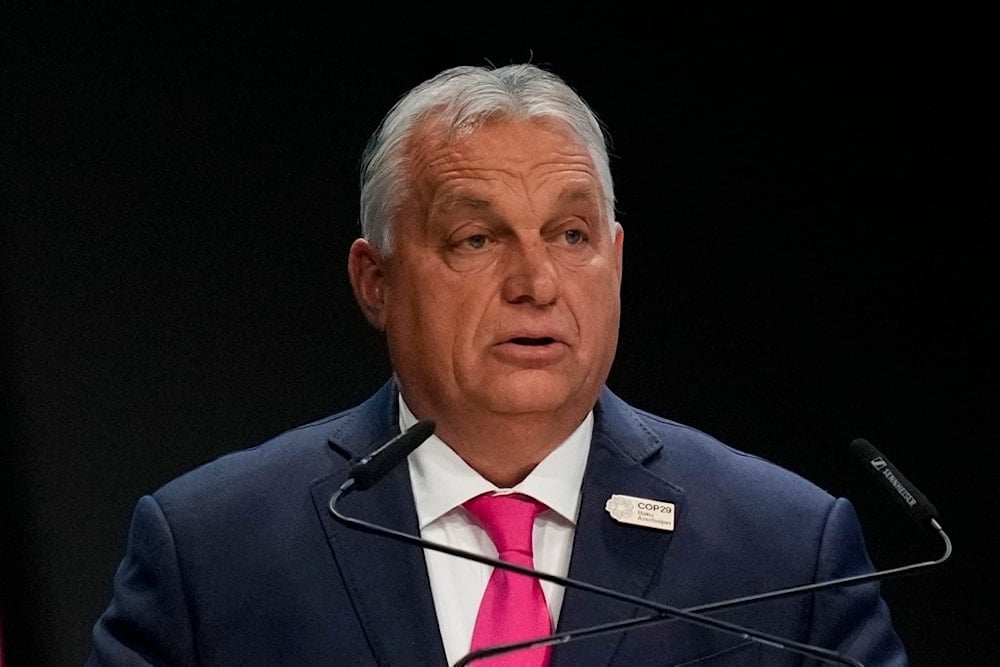Hungary's Orban invites Netanyahu despite ICC arrest warrant
Hungarian Prime Minister Viktor Orban invites his Israeli counterpart to Budapest to spite the International Criminal Court following the issuing of arrest warrants for the Israeli premier.
-

Hungary Prime Minister Viktor Orban speaks during a plenary session at the COP29 UN Climate Summit, Tuesday, November 12, 2024, in Baku, Azerbaijan (AP)
Hungarian Prime Minister Viktor Orban announced on Friday his intention to invite Benjamin Netanyahu to Hungary, signaling defiance against a recent International Criminal Court (ICC) arrest warrant issued against the Israeli premier. Hungary currently holds the rotating presidency of the European Union.
The ICC, based in The Hague, issued warrants on Thursday for Netanyahu and former Israeli Security Minister Yoav Gallant, citing accusations of crimes against humanity and war crimes committed during the ongoing genocide in Gaza.
Read next: Netanyahu avoids Europe fearing arrest amid potential ICC warrant
Describing the ICC's decision as "outrageously brazen and cynical," Orban criticized the court for "intervening in an ongoing conflict under the guise of a legal decision but for political purposes." He emphasized Hungary's refusal to comply with the ruling.
"There is no choice here; we have to defy this decision," Orban said in his weekly state radio interview. He confirmed plans to invite Netanyahu to visit Hungary, assuring him that the ICC judgment "will have no effect in Hungary" and promising that Budapest would not enforce the court's terms.
Although Hungary signed the Rome Statute in 1999 and ratified it in 2001, Orban’s government asserts that the country is not bound by the ICC's decisions due to constitutional concerns over the treaty's domestic promulgation.
'Israel' dismisses warrants
Similarly, "Israel" dismissed the ICC's move as politically motivated, with Netanyahu denouncing it as antisemitic. The United States, the occupation's closest ally, also criticized the decision, while rights groups, including Amnesty International, expressed support for the court's action.
Netanyahu’s office stated, "Israel rejects with disgust the absurd and false actions leveled against it by ICC," asserting that the occupation government would not "give in to pressure."

 4 Min Read
4 Min Read








